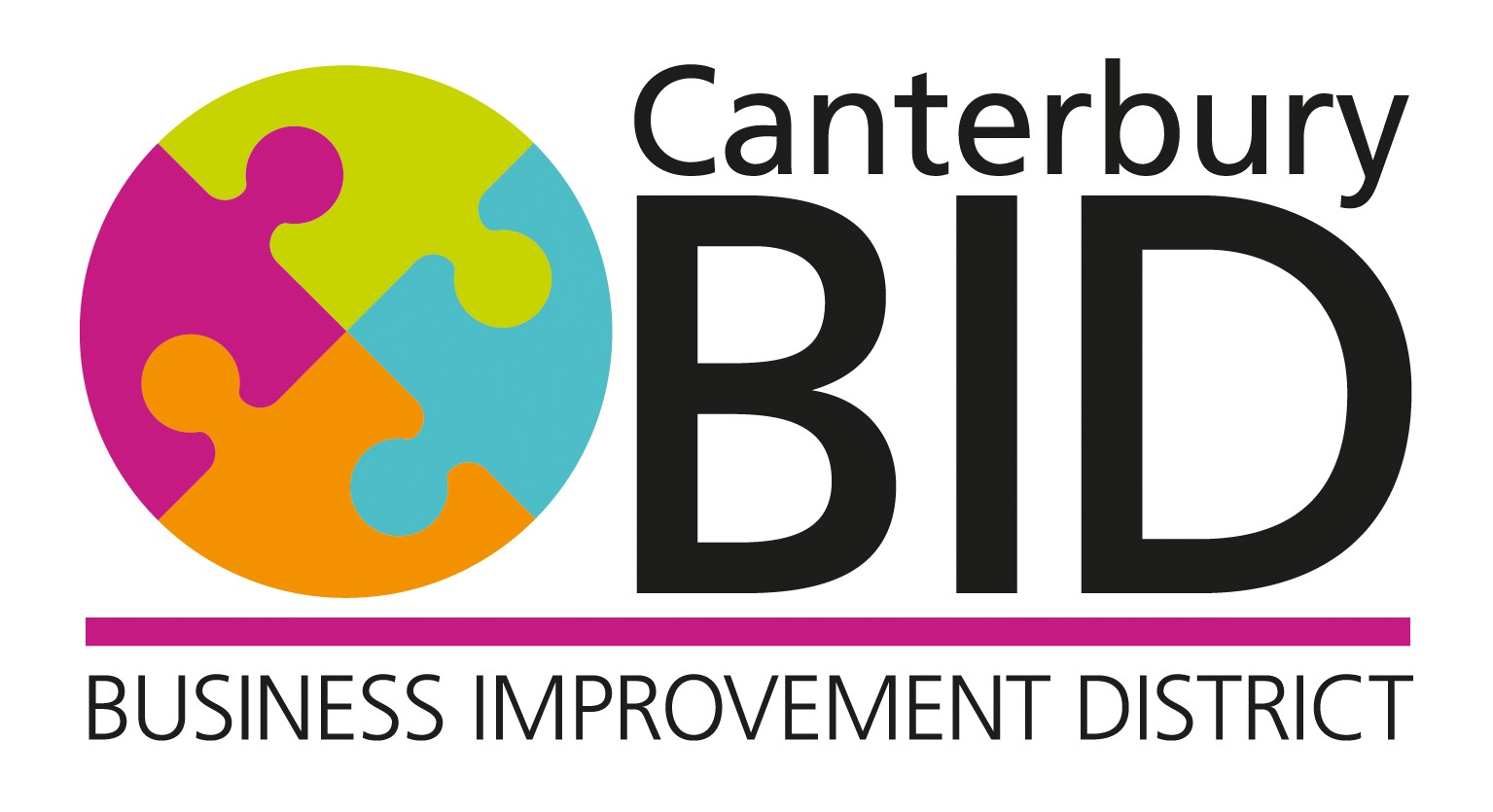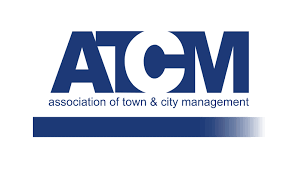About BIDs
1. What is a BID
‘BID’ stands for ‘Business Improvement District’. BIDs are business-led partnerships that agree by ballot every five years to pay an extra levy based on their rateable value to fund activities, services and improvements that will benefit the businesses and the place in which they operate.
BIDs were first established in Canada and the US in the 1970s and now exist across the globe, including in South Africa, Germany, Japan, New Zealand and Australia.
Legislation enabling the formation of BIDs was passed in 2003 in England and Wales (with subsequent regulations published in 2004 and 2005 respectively) and in 2006 in Scotland. Kingston First became the first BID in the UK in 2005 and Canterbury BID became the first in Kent in 2014.
2. How does a BID happen?
A BID can only be formed following consultation and a ballot in which businesses vote on a BID Proposal or business plan for the area. The ballot is run by the local authority or outsourced by the local authority to a third party. All businesses eligible to pay the levy are balloted. For a BID to go ahead the ballot must be won on two counts: straight majority and majority of rateable value (RV). This ensures that the interests of large and small businesses are protected. The ballot is run independently by the local authority.
In 2014 the BID 1 ballot received a 54% voter turnout, with 64% voting in favour and 61% by rateable value. In 2019, there was a 52.4% turnout (national average 48%) with 69.42% voting in favour and a 74.85% by rateable value.
3. What are the benefits of BIDs?
The benefits of BIDs are wide-ranging and include:
- Long term investment: BIDs allow businesses to influence economic change in their area by raising their own pot of money that is spent on their priorities.
- Economic growth: BIDs deliver good value projects through collective procurement, promote economic growth through enhanced footfall and regional presence, establish practical links between private and public sector institutions, and attract additional inward investment.
- Competitive advantage: BIDs help to establish a competitive advantage by providing an improved environment for clients and employees and better facilities for businesses.
- Additional Funding: BIDs can apply for additional funding through: voluntary contributions from businesses outside the BID area; lottery funding; or grants. During BID 1 and BID 2 we were able to raise an additional 20% on top of the levy.
- Lobbying: BIDs are representative of local businesses and so they can lobby on their behalf with the local authority and other agencies to effect change. The Canterbury BID CEO is also the Chair of the Board of the Association of Town and City Management, which hosts the All Party Parliamentary Group for Towns and City Centres, so your voice is being heard at a national level too.
4. How many BID areas are there in the UK?
Nationally, there are over 340 BIDs in the UK, including three in Kent (Canterbury was the first), investing over £150 million every year, giving business an independent voice and investing in business-led initiatives.
5. How long does a BID last?
A BID lasts for five years. If it is successful, another ballot may be held towards the end of this period to decide whether the BID should continue for another five years.
6. Does a BID mean that the local authority will stop providing services?
No. We have established a baseline service provision from Canterbury City Council, Kent County Council and Kent Police for the following areas:
- Policing
- Highways maintenance
- Street lighting
- Licensing & enforcement
- Markets
- Street cleansing
- Car & coach parking
- Tourism
- Museums
- Community safety & CCTV
- Transportation
- How do I know if it’s working?
Each year the BID will produce an Annual Report, available on the BID website and sent to all eligible levy payers, to show what the BID is delivering and the return on investment.
BID Ballot
7. How does the BID ballot work?
The BID ballot, which is a 35-day postal ballot, is run by Canterbury City Council as the local authority and therefore the “ballot holder”. BID regulations state that:
“As soon as practicable after the day of the ballot, the ballot holder shall make arrangements for counting the votes cast on such of the ballot papers as have been duly returned (in accordance with paragraph 13(1)) and record the number counted. (2) No person other than the ballot holder and his clerks may be present at the counting of the votes, unless permitted by the ballot holder to attend.”
The reason the ballot papers are counted in private is that business and contact names are on the ballot papers, and how a business votes is private.
8. Am I eligible to vote?
All eligible businesses within the BID Area with a rateable value exceeding £5,000 can vote.
9. Who should cast the vote for a business?
- Each business and/or organisation entitled to vote in a Business Improvement District ballot is allowed one vote in respect of each property occupied or, if unoccupied, owned by them in the geographical area of the Business Improvement District as at the date of the Notice of Ballot issued.
- The business/ property owner themselves, or their nominated representative i.e. a manager/supervisor can vote.
- If the voter has left the business, a nominated representative i.e. a manager/supervisor can vote in their place.
10. Why should I vote Yes?
Voting YES to a BID in Canterbury will mean that you will see investment in activities that enhance the city’s marketing, maintenance and appearance, ensuring there is investment in the trading environment that is based on business priorities, and that the city is a welcoming place for everyone.
11. And if I vote No?
Canterbury will no longer have a BID. Voting no will mean that you are saying no to Christmas lights, hanging baskets, Visit Canterbury, investment in safety & security, additional cleaning, Best Bar None awards, Purple Flag accreditation, city-wide national promotions for the Summer, Christmas in Canterbury campaign, BID networking, city performance metrics, training the free MyCanterbury platform, the Canterbury Gift Card and support of the BID Ambassadors, amongst other things.
12. How do you ensure the BID investment adds value?
We will enter into baseline agreements with the local authorities and other service providers. These agreements will guarantee the level of service provision in the area and show you what the councils will continue to provide. In this way you can see who does what and be confident that the BID investment is providing added value.
13.How is the BID campaign funded?
Under BID legislation, we are required to produce a “Statement of BID Arrangements” (commonly known as the Business Plan) to businesses ahead of the BID ballot for businesses to understand what they will be voting on. The Business Plan is based on extensive consultation. Reference to this plan is essential for levy payers to help them decide on how to vote in the ballot. To increase voter turnout, materials are produced to create awareness of the ballot.
BID Levy
14. Isn’t this what I pay my business rates for?
No. Business rates are collected by Canterbury City Council and redistributed at a national level. The council spends the allocated funding on services that are both statutory and discretionary, and businesses have very little say on what these services are. BIDs differ from this as the money is collected locally, ring-fenced and controlled and managed by you. It can only then be spent on initiatives detailed in business plan that you have agreed to. The BID levy does not pay for anything covered by your business rates.
15. What will I get back for my money?
An extra £3.6 million over five years will be generated. Canterbury will be better promoted, better presented and more vibrant. This will help to increase footfall, improve sales and make Canterbury a more attractive, safer and better managed city. You may also see savings to your bottom line and a much ‘higher profile’ for the city and therefore your business. A BID will also increase communication between businesses and deliver results. You will be an integral part of the city’s success and an important voice in the process.
You also gain the BID Board representing a broad range of sectors and size of business for the city centre. The Board are an amazing resource who volunteer their time, for free, to ensure your voices and priorities are the focus of BID activities. You can see who they are here.
16. Given the difficulties the high street is facing, is this a good time to ask businesses for additional financial contribution?
The alternative is to ‘do nothing’. That means that new businesses or visitors will not come to Canterbury and existing businesses may go elsewhere, seduced by other towns that are making this kind of investment. To quote Rachel Sanders from BoConcept:
“We all know about the challenges of the high street. The situation is complex, but with good leadership, I believe we can not only fill the empty stores but create a vibrant business hub that serves all of our community. The businesses in the centre of Canterbury are interdependent. My success directly impacts my neighbour’s success and that is why I believe that a collaborative approach through BID is essential.”
17. What will the public sector contribute?
The public sector will pay the levy in the same way as other businesses in the BID area. Canterbury City Council own 16 hereditaments in the city centre (at the time of writing this) and will be paying accordingly. Kent County Council own one hereditament in the city centre. Please note, the BID levy in Whitefriars, while owned by Canterbury City Council, is paid by the retailers who occupy the units.
18. Can I opt out?
No. A positive result in a ballot mean that all eligible businesses over the threshold and within the BID boundary are required by law to pay for a 5 year period.
19. If businesses vote ‘no’, will they still have to pay?
Yes, if a majority vote in favour by number and rateable value, the levy will become mandatory. Payment of the levy carries the same enforcement as non-domestic rates (business rates).
20. I’m a small business, will I benefit as much as the larger chains?
The levy is a percentage of rateable value so generally, you will be paying a lot less than the national chains. However, the benefits will be equitable. The projects and activities of the BID are designed to enhance the trading environment across the whole city.
21. What happens if my business closes or moves during the year? Will I get a refund?
The BID Levy is based on a Chargeable Day, in our case the 13 October which is the start of the BID year. What this means is that whoever is liable for the Business Rates on this day each year is also liable for the full BID levy, in a single payment. This means that there are no refunds available for the balance of the year if you move out of the premises for which the levy is liable; the balance of the levy is then a matter for negotiation between you and any incoming tenant or the landlord if at the end of the tenancy.
The presence of a BID levy should arise in pre-transaction searches and questions about whether a given property is included in a BID area, and if so, the amount of levy and related matters are included in standard enquiries which are raised in every commercial property transaction.
Canterbury City Council are responsible for issuing the levy bills. If you move in or out of a business property you must let them know immediately as this helps them keep your business rates bill and BID levy bill accurate.
22. Why can’t I pay in instalments, like Business Rates?
A formal instalment plan would significantly increase the cost of collection, impacting the money invested in the city. In addition, the BID levy rules require collection the BID levy in a single annual instalment. It is the view of the BID Board that this money is better used to invest in the programmes businesses want to see in the city, not on collection charges.
Finance
24. How are the BID accounts prepared?
The BID’s accounts are independently prepared by Burgess Hodgson. The value of transactions passing through Canterbury BID on an annual basis was not significant enough (£600k against statutory minimum of £10.2 million) for there to be an obligation for the BID to arrange for its accounts to be audited. Therefore, the BID Board Directors decided to not the incur the additional expense a voluntary audit would involve and instead prioritised the budget on direct spend within the city helping local businesses within the BID area. However, the BID Board took the decision to publish the accounts in full on the BID website.
25. How are the BID team’s wages allocated?
Canterbury BID is a professional body and operates like many other corporate organisations in the UK with a dedicated team who oversee all projects to ensure that they run smoothly and deliver their objectives, as well as being on time and budget. Some projects are delivered in-house and some are outsourced. For the in-house projects, services would have to be outsourced if there weren’t delivered by staff so these costs are allocated to the appropriate project line.
Projects
26. What has the BID done to provide additional cleaning?
In BID 1 we spent 2,320 hours deep cleaning 13 miles of city streets and introduced a pilot programme to tackle graffiti by funding anti-graffiti paint on grot-spots and by providing graffiti wipes to clean tags on lamp posts, doorways, signs and hoardings across the city.
In BID2 we have established a regular programme of rapid response cleaning with our own electricly-powered cleaning machine. The service the BID provides is in addition to the cleaning provided by Canterbury City Council.
27. What is MyCanterbury and how can I use it?
MyCanterbury promotes all that Canterbury has to offer by sharing up-to-date news, events, discounts and offers, as well as ‘insider knowledge’ about the city. It provides free B2C marketing support to Canterbury BID businesses through Facebook and Instagram posts, website listings, weekly eNewsletters, printed and digital maps and seasonal guides. The content provides inspiration to residents and visitors, encouraging them to spend more time and money in the city. MyCanterbury helps customers discover and connect with businesses in Canterbury as well as providing a consistent incentive to visit the city time and time again.
COVID-19
During what was an incredibly challenging time, Canterbury BID remained 100% committed to supporting your business and our community. We maintained operations during the lockdown period and remained at the forefront of the local recovery effort, coordinating a range of campaigns and practical support to build confidence amongst businesses and consumers.
28. What have you done for BID levy payers since lockdown?
We moved quickly at the beginning of the crisis to protect your BID levy investment and to ensure we could deliver on projects and activities that would benefit you most during this time.
The BID Business Plan outlines the activity promised during this five-year term (2019-2024). We created this report to explain how your BID levy is calculated and how your levy was invested in 2019-20 as the pandemic unfolded. You can also find out how your levy was invested in 2020-21 in our latest annual report.
This activity would not have happened without the BID and has required significant funding. We have achieved this by reprofiling the BID budget and working flexibly to react to an anticipated reduction in commercial income.
29. Why wasn’t there a BID levy holiday like with Business Rates or a discount?
The BID levy is unlike business rates which are covered in part by national government rates relief measures. BID legislation (BID Regulations Act 2004 and Local Government Act 2003) is clear that we must continue to bill. In line with that legislation and our BID Levy Rules, we are not permitted to discount the levy and the levy bills have to be issued.
30. Did the BID receive government funding?
The BID received a small amount of funding from government designated by the guidelines for operational costs in June, July and August so that we could continue running projects and activities during re-opening. We also made use of the furlough scheme – four members of the BID team were put on furlough between March and May 2020, with partial furlough continuing through October 2020.







